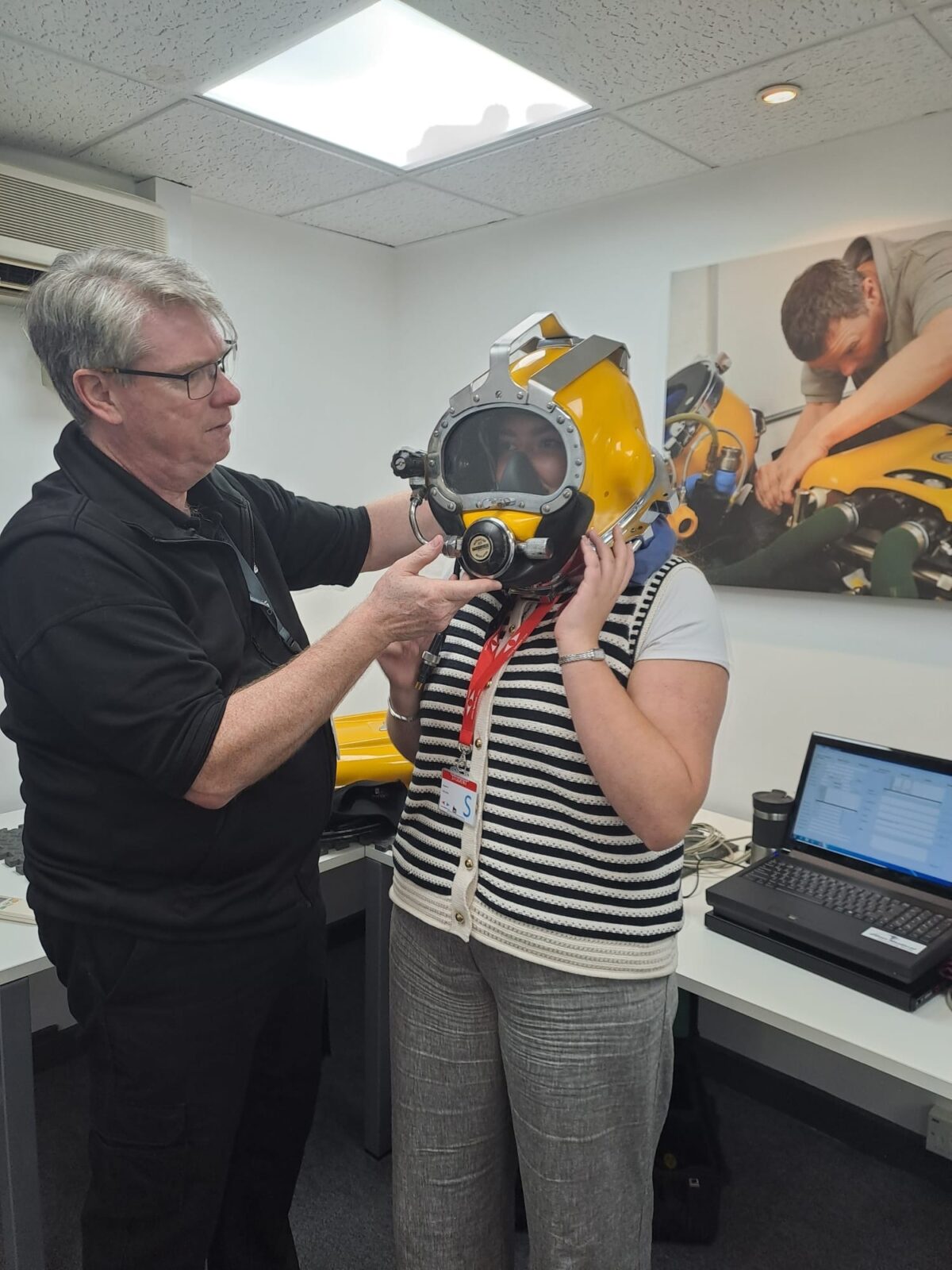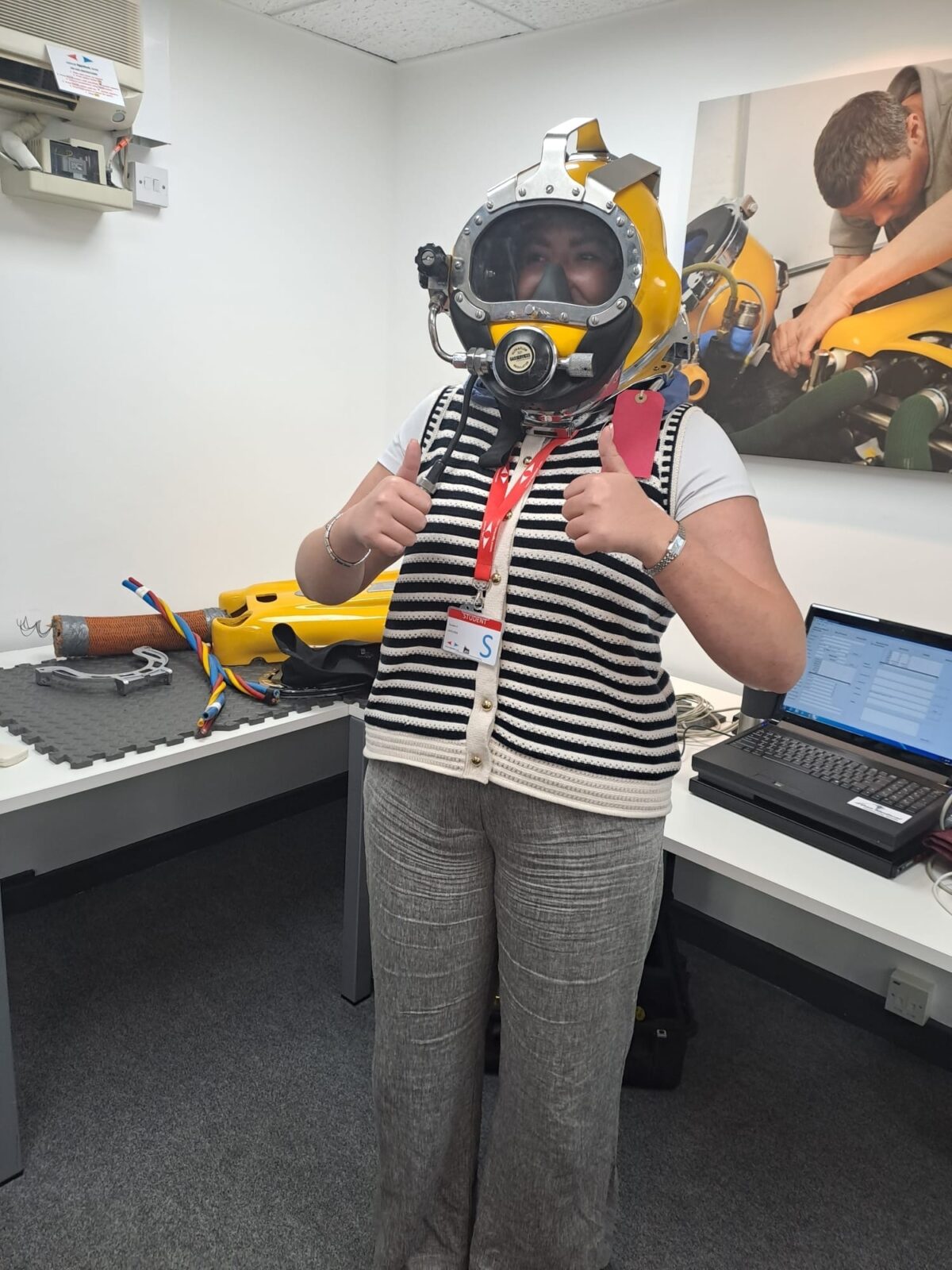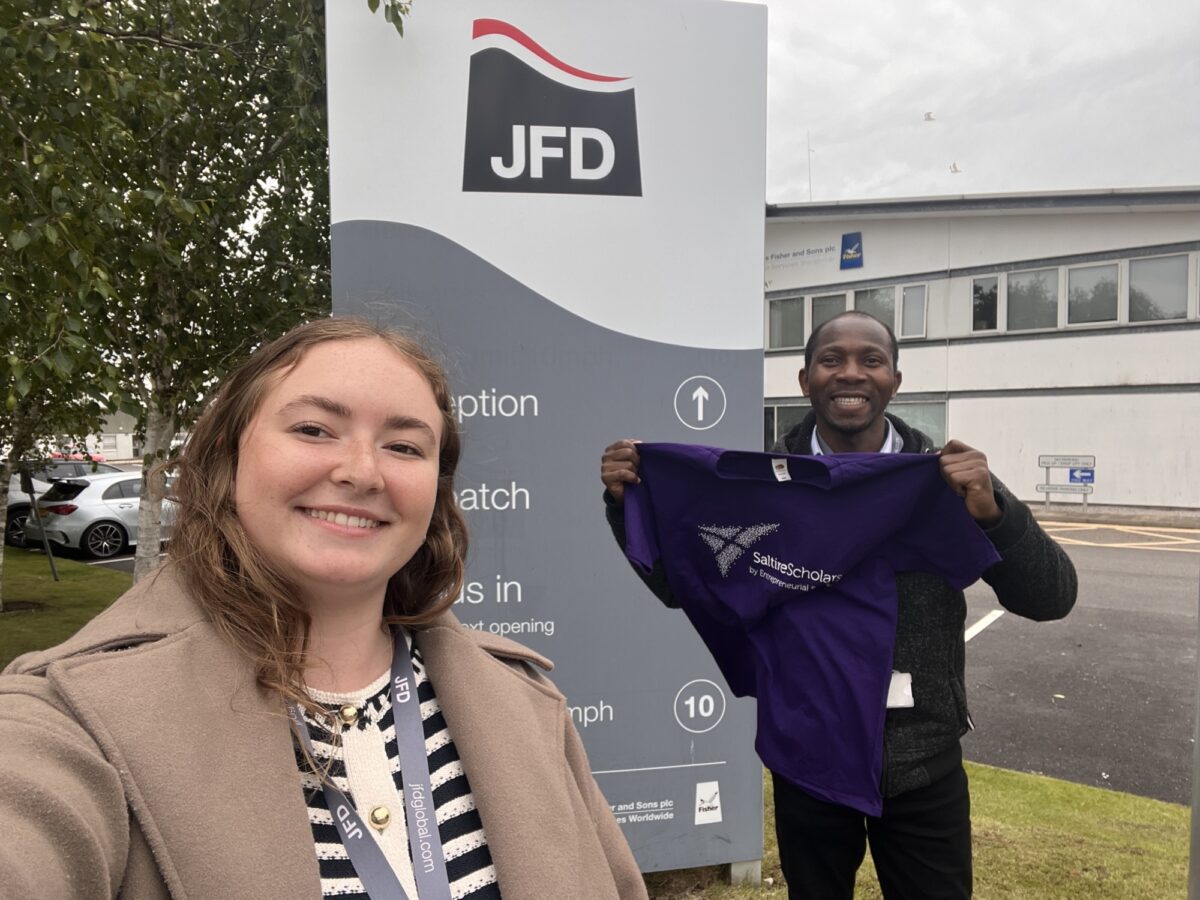This summer, I've been interning with James Fisher & Sons (Decom) in Aberdeen as a Diver Wearable Device Intern, working on some exciting technology designed to improve diver safety. Alongside another intern, we’ve been developing a prototype that can monitor vital signs in real time something that could make a real difference in high-risk underwater environments.
Before starting the role, I was a bit nervous. I didn't know much about diving or the extreme environments divers work in, and I wasn't sure how much of what l'd learned at university would translate. But I quickly realised that being curious and asking questions makes a huge difference. I was lucky to have a supportive manager who gave us all the tools we needed to succeed and was always there to help us out along theway.
The first few weeks of my internship were spent immersing myself in the world of diving. Since I had limited prior knowledge of the field, I spent time learning, researching and asking lots of questions to build a solid foundation. One of the most valuable experiences was attending an introduction to diving course, where I gained insight into the physical and technical demands of the profession. I also had the experience to speak directly with professional divers, which gave me a deeper appreciation for the challenges they face and the importance of safety within their work. Getting to see the equipment they use daily such as dive suits, rebreathers, helmets and communication systems was extremely interesting. Trying on a 15kg diving helmet was a memorable moment for me, I walked away with a whole new respect for the strength and resilience divers need just to gear up.
Once I had a better understanding of the diving world, we moved on to developing a prototype of the wearable device. I focused on the design side using SolidWorks, while my fellow intern, who's an electrical engineer, handled the electronics and integration. It was a great partnership; we played to our strengths and learned a lot from each other.
We also got hands-on experience with rapid prototyping, learning how to use a 3D printer to bring our design to life. Seeing something we'd worked on for weeks take shape right in front of us was incredibly rewarding.
Funny enough, one of my favourite parts of the internship ended up being the thing I was most worried about—working on a topic I didn't know much about. I thought not having a background in diving would hold me back, but I really enjoyed constantly learning new things about it. Every time I discovered something new, it helped me see the project from a different angle and made the work even more interesting.
This experience has had a profound impact on me. I've grown in confidence, not just technically but also how I communicate and collaborate within a team. I've learned how to deal with uncertainty, manage project timelines and take feedback on board. These are all things I know will be useful no matter where l end up next, and I'm grateful to have had the chance to develop them in such a hands-on, supportive environment.
If you're a student thinking about applying for a Saltire Scholar internship, go for it. It's a brilliant way to challenge yourself, meet people from all kinds of backgrounds, and put your university skills to the test in the real world. You don't need to know everything before you start - just be open to learning and ready to get stuck in.


